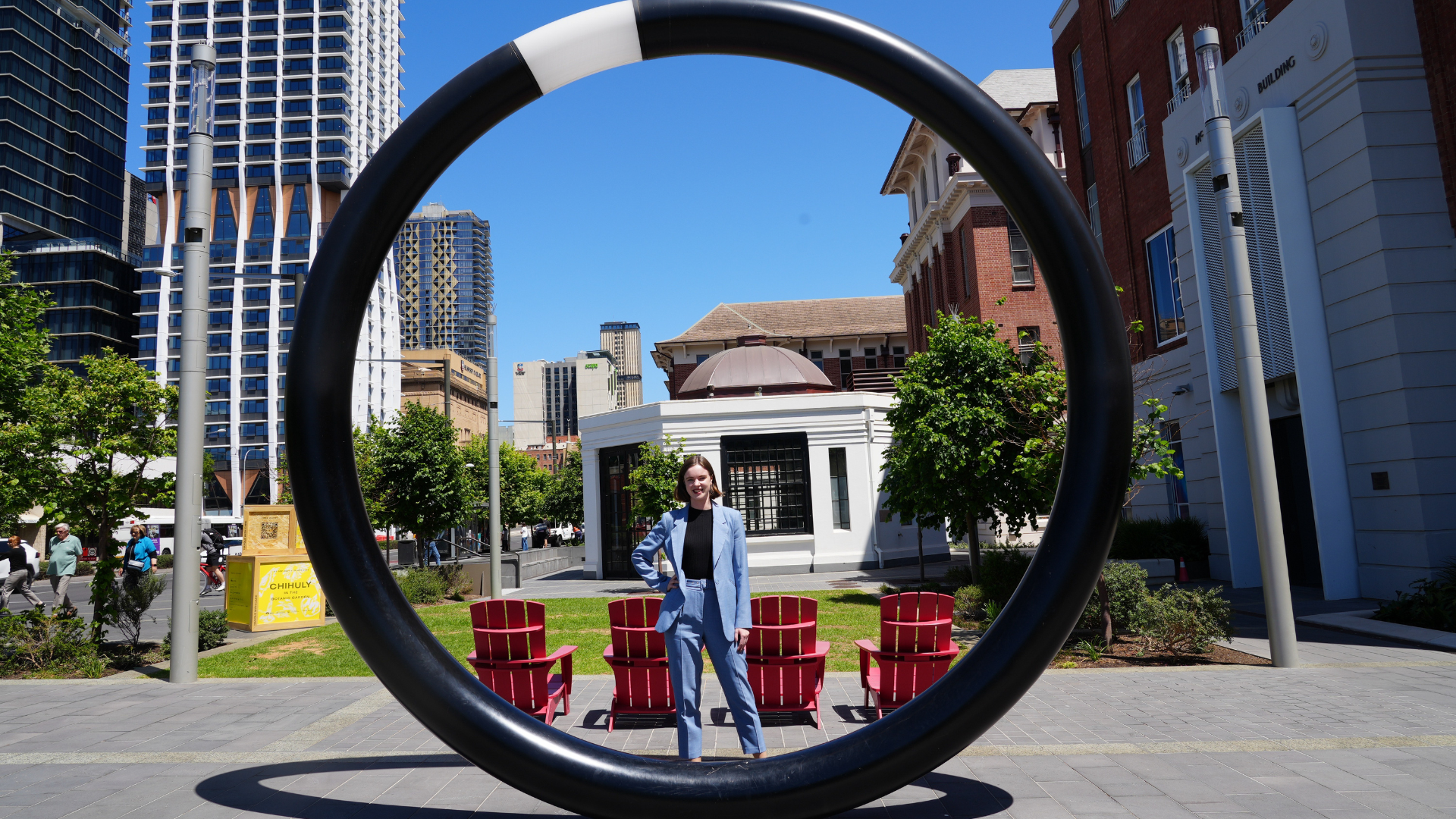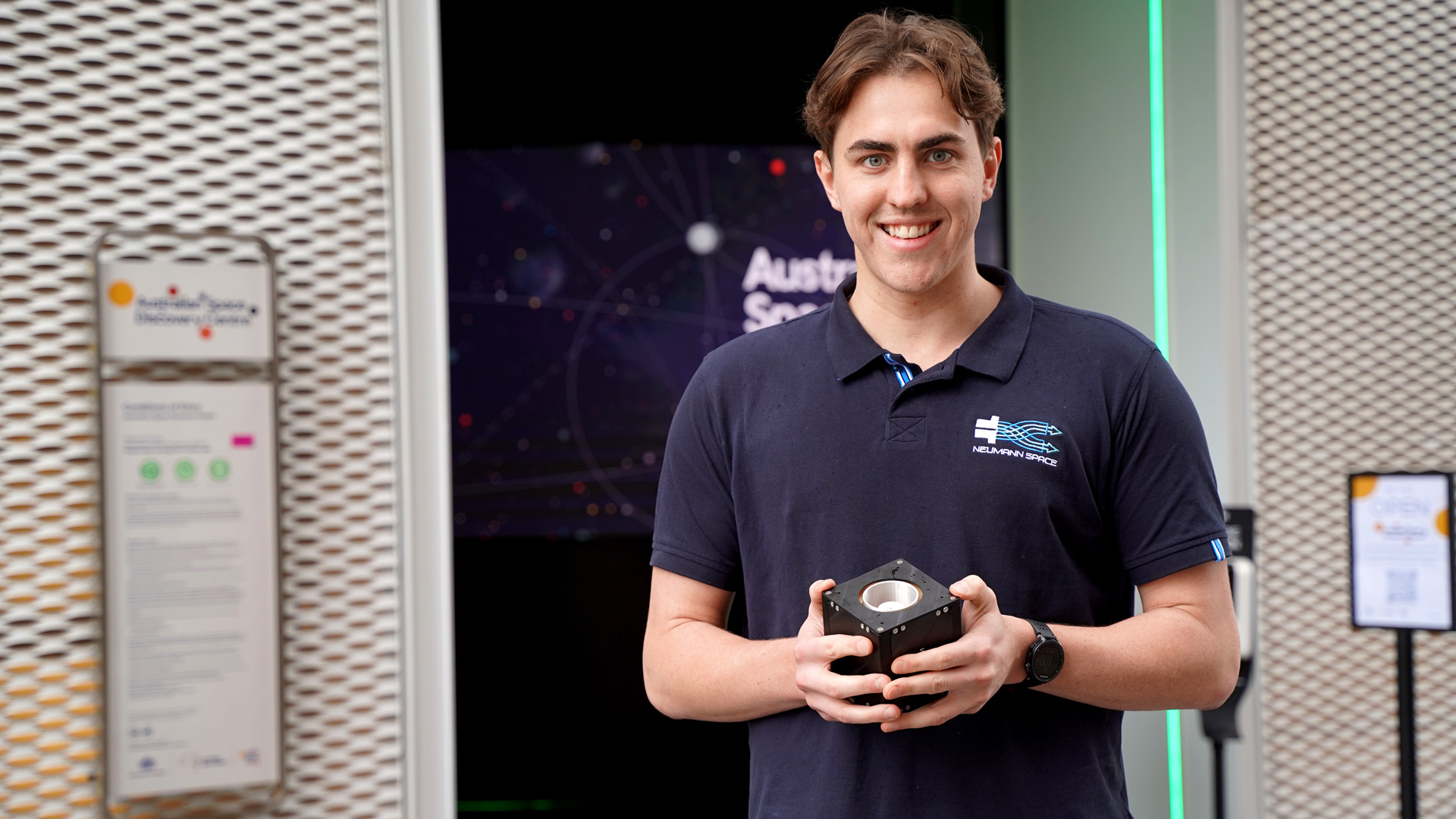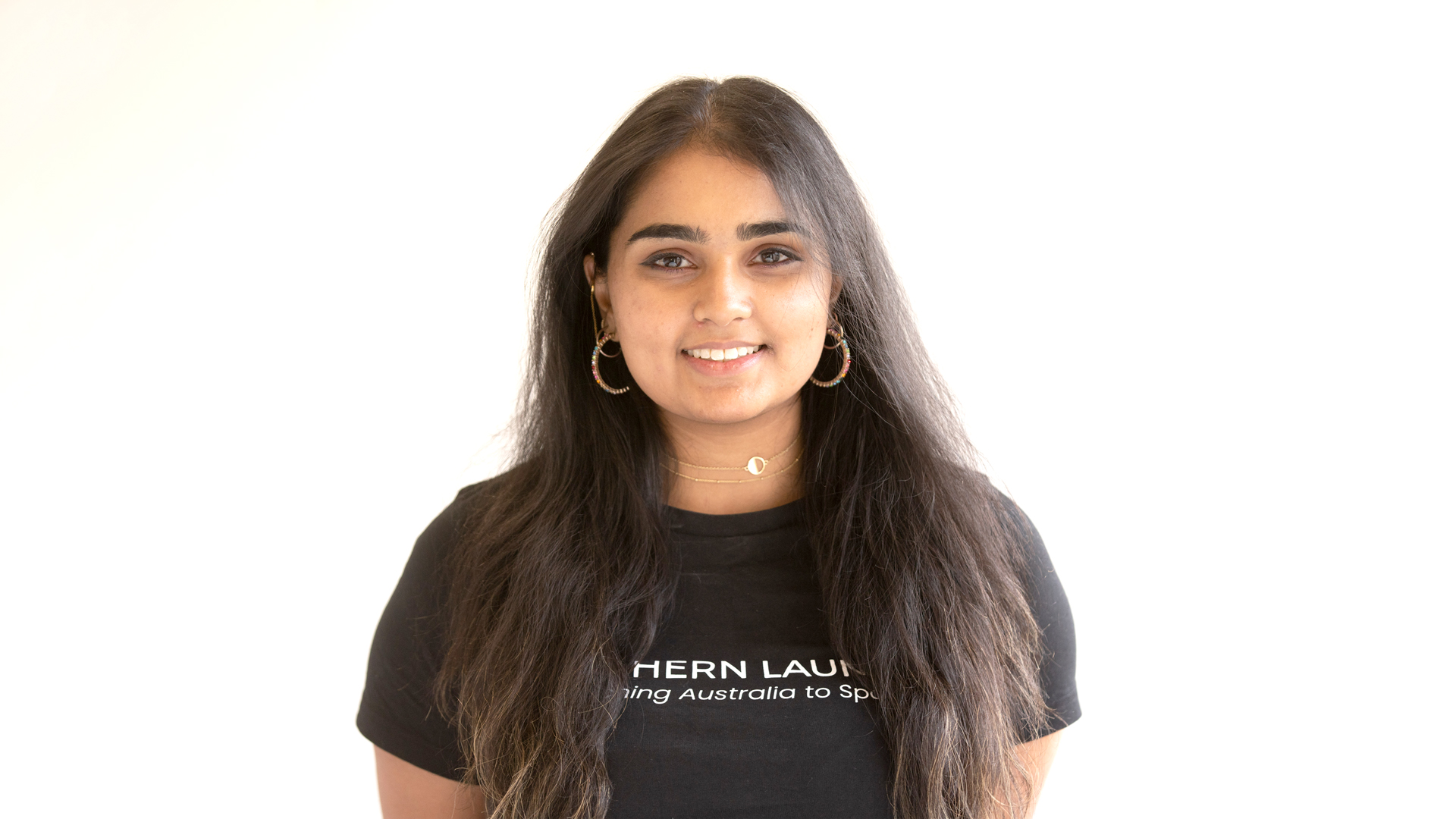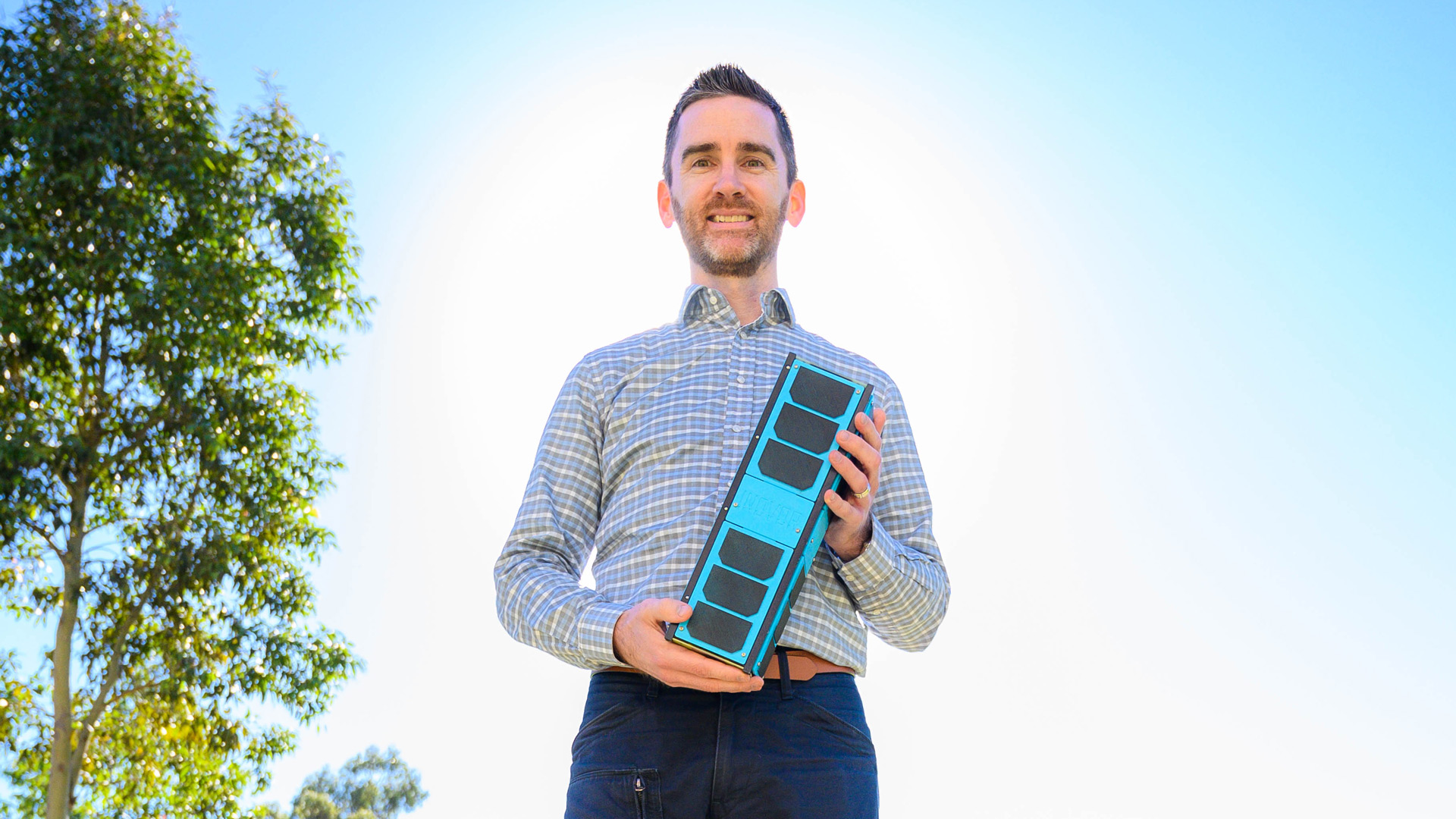Georgia inspires women in STEM to reach for the stars
As one of South Australia’s youngest female STEM graduates rocketing to success in the state’s space sector, Georgia Dallimore is passionate about inspiring the next generation of women in STEM to reach for the stars.
With a fascination for space that began as a child, Georgia knew a STEM career pathway would set her in the right direction for a rewarding career in the space industry.
“I remember learning about the Apollo program in year 2 at school and it fascinated me. From that point, space was always in the back of my mind,” Georgia said.
Her decision to pursue a career in South Australia’s space sector was cemented when Adelaide was announced as the home of the Australian Space Agency headquarters.
“From that moment, I knew I was going to study aerospace engineering and see where it would take me,” she said.
Even though she only recently completed a double degree in mechanical engineering – majoring in aerospace – and maths and computer science at the University of Adelaide Georgia has already made her mark in the local space sector.
Just a year into her degree, she undertook a three-year mechanical engineering internship at Fleet Space Technologies. During her time with Fleet Space, she supported the thermal engineering design on the company’s ‘SPIDER’ lunar seismic payload – a geophysical device set for deployment on the Moon in 2026 as part of Firefly Aerospace’s Blue Ghost Mission 2 to accelerate the search for water ice deposits in the lunar subsurface.
“It was pretty incredible solving complex engineering challenges with the team; we developed a payload that pushes new boundaries of technology,” she said.
For Georgia, her work at Fleet Space fuelled her passion for sustainable planetary exploration – an area she is eager to grow her knowledge and understanding in through further studies overseas.
In recognition of her leadership potential, Georgia has received a 2025 John Monash Scholarship, a prestigious award that enables talented Australians to pursue postgraduate studies at the world’s leading universities. With her scholarship, Georgia has applied for a Master of Science in Space Systems at the Massachusetts Institute of Technology (MIT) in the US, to begin later this year.
“I want to bring that specialised knowledge back to Australia and contribute to national missions and other projects that align with my goals of advancing space sustainability and planetary exploration,” she said.
Building a community of women in STEM
Despite her early career success, Georgia admits to experiencing imposter syndrome, which she overcame by finding a supportive network of women in STEM.
“In the first few years of my degree, I remember being the only female in some classes,” she said. “I felt myself questioning, am I good enough? Do I belong here?”
“However, finding other incredible women in my degree and forming strong friendships built on teamwork made a huge impact in overcoming those feelings. Then, as I began my space career journey, having wonderful mentors who championed my growth only further built my confidence to shoot for the stars.”
As an advocate for greater diversity in the space sector, Georgia is encouraging more women to pursue STEM pathways and explore career opportunities in the booming space industry.
“STEM is so critical for the future of humanity. When you pursue a STEM or space career you are helping to solve real-world challenges. Your work can have a direct, positive impact on building the world of tomorrow.”
“Space should reflect society, so we need all kinds of perspectives, from all walks of life – and that includes women and girls.”
Educating the next generation about the variety of careers in the space sector and the growth of the industry is something Georgia is passionate about in her current role as a space communicator at the Australian Space Discovery Centre (ASDC).
“I love helping to inspire the public about the different types of space careers you can have and promote the amazing innovations being developed right here in Australia,” Georgia said.
“Space is an incredibly exciting sector to work in. It rewards curiosity, encourages teamwork and builds camaraderie with your colleagues as you collaborate on cutting-edge projects for one of the most extreme engineering environments.
“You can be whoever you want to be in the space sector. Whatever your passions are, there’s almost an infinite number of ways they could align with space.”
Visit the Find Your Place website to explore out-of-this world career opportunities in South Australia’s space sector today.




















